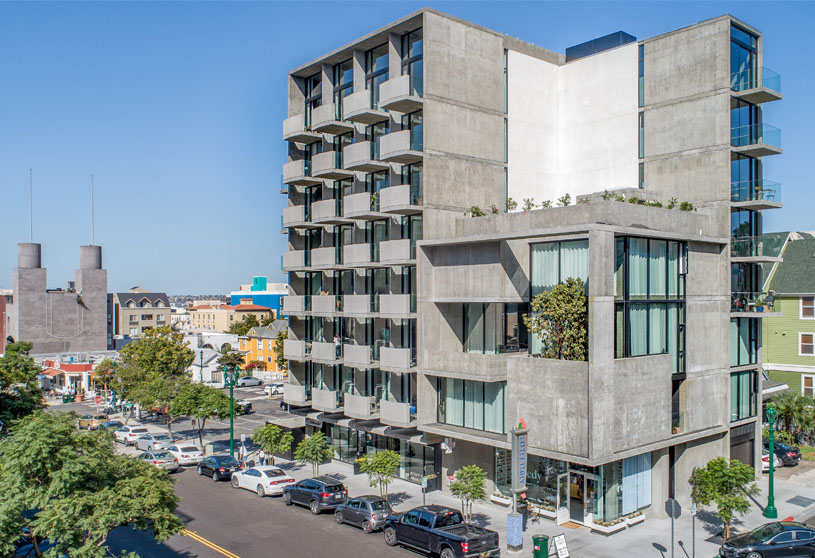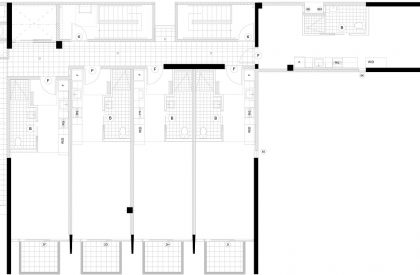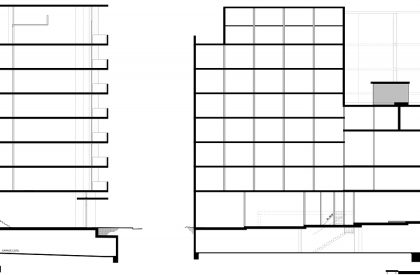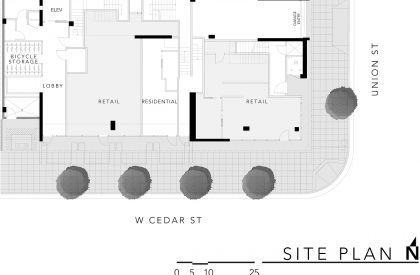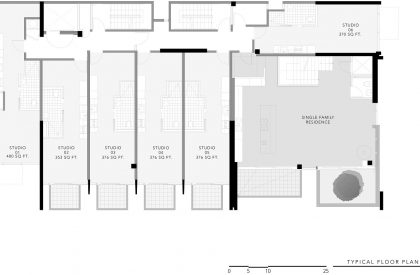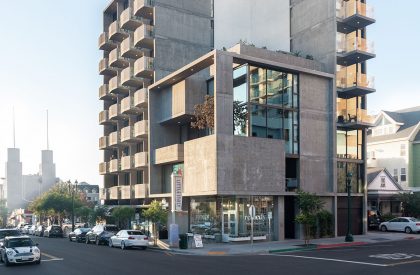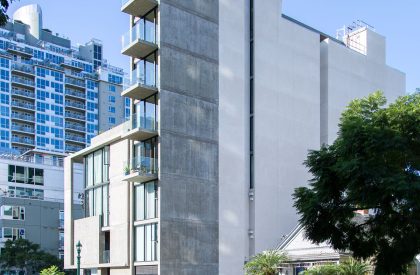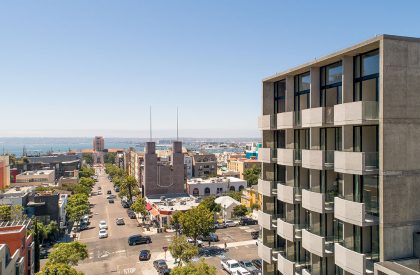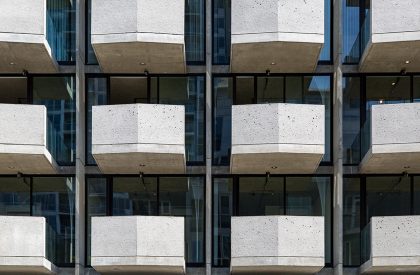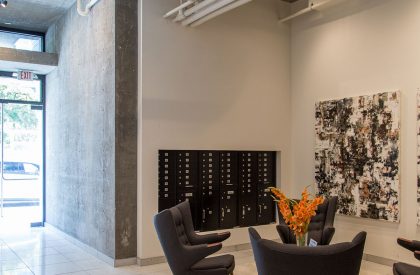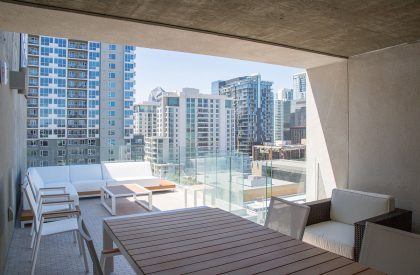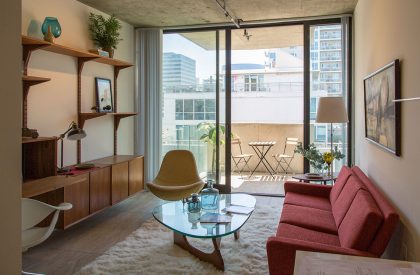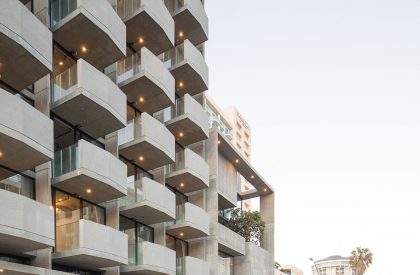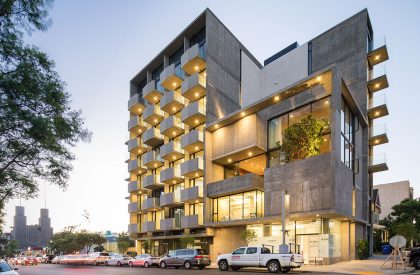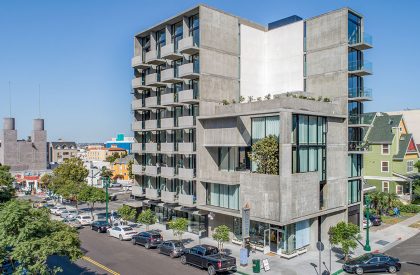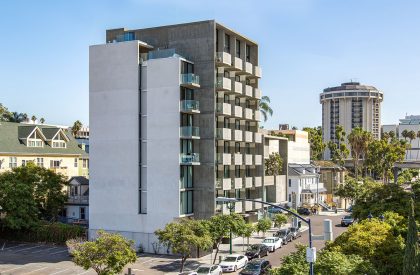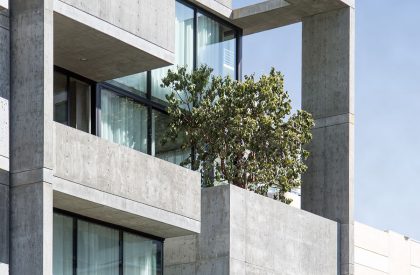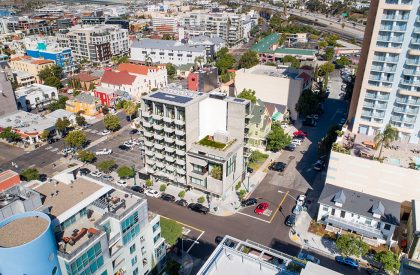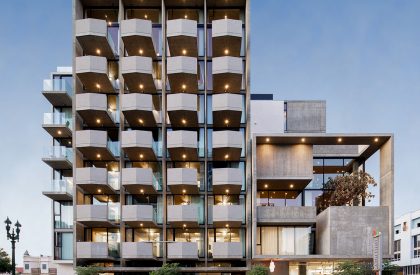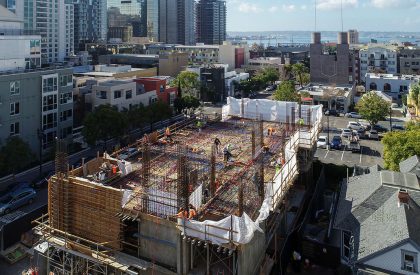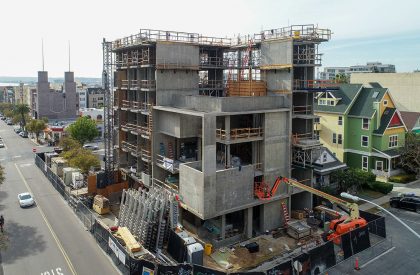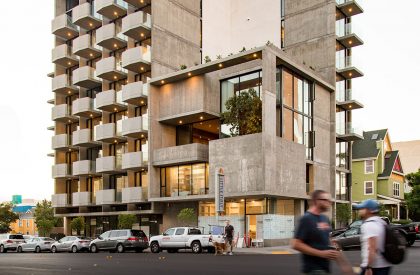Excerpt: The Continental, designed by Jonathan Segal FAIA, is a case study in reducing apartment size into a 400 sq. ft. “efficiency unit” and initially planned to eliminate all onsite parking. This mixed-use project is situated on a postage stamp-sized lot at 5,000 square feet and has 42 apartments, 5 of which are very low income, commercial spaces on the ground floor and a 3 bedroom single family home at the corner. The building features concrete and steel construction with floor to ceiling glazing and large balconies serving as a reprieve from the more intimate interior space.
Project Description
[Text as submitted by architect] In Little Italy, San Diego there is a shortage of apartments at a price point working class people can afford. This is driving people farther away from the city and creating a further reliance on the automobile. One of the main impetus for this increase in costs is parking. Parking takes up a tremendous amount of space, drives up construction costs, and delays construction.
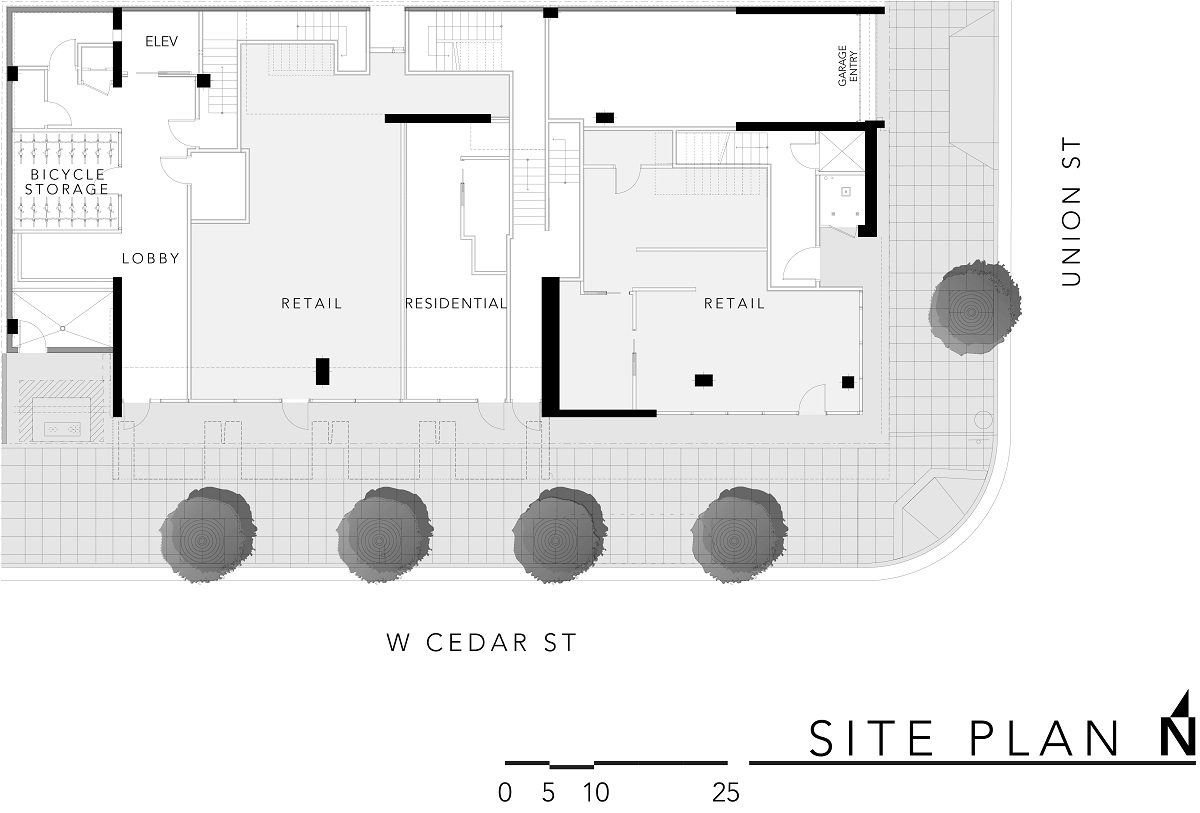
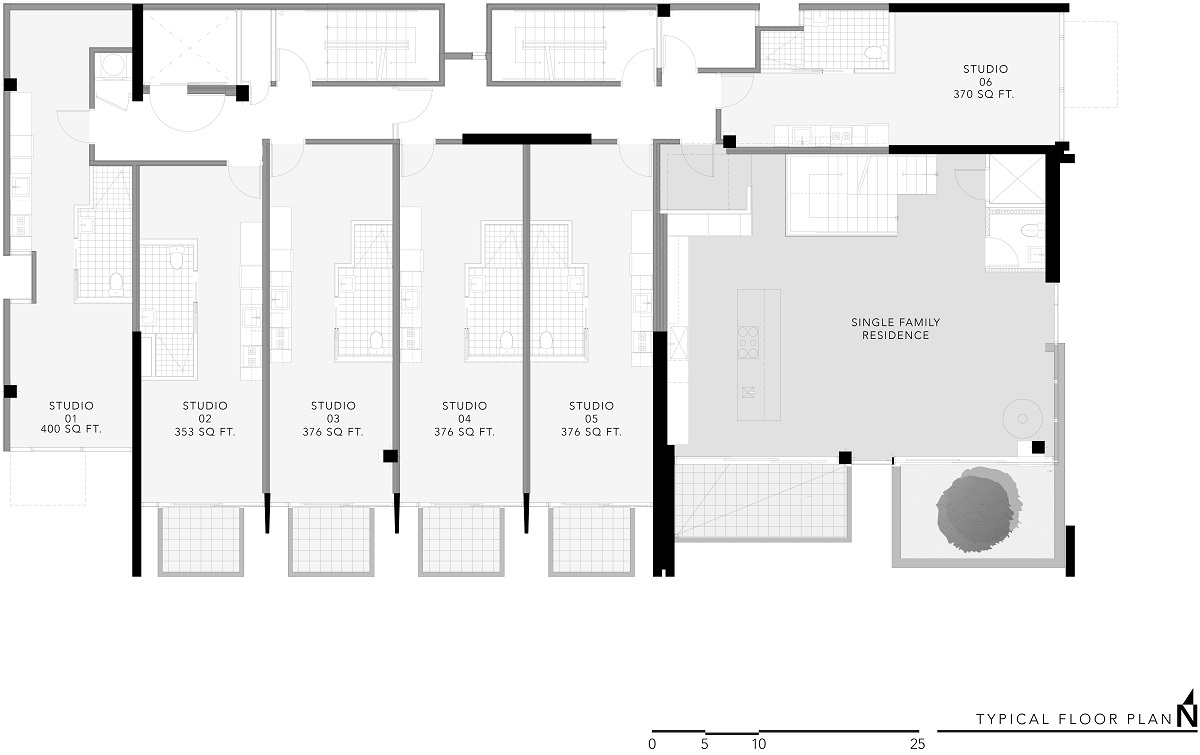
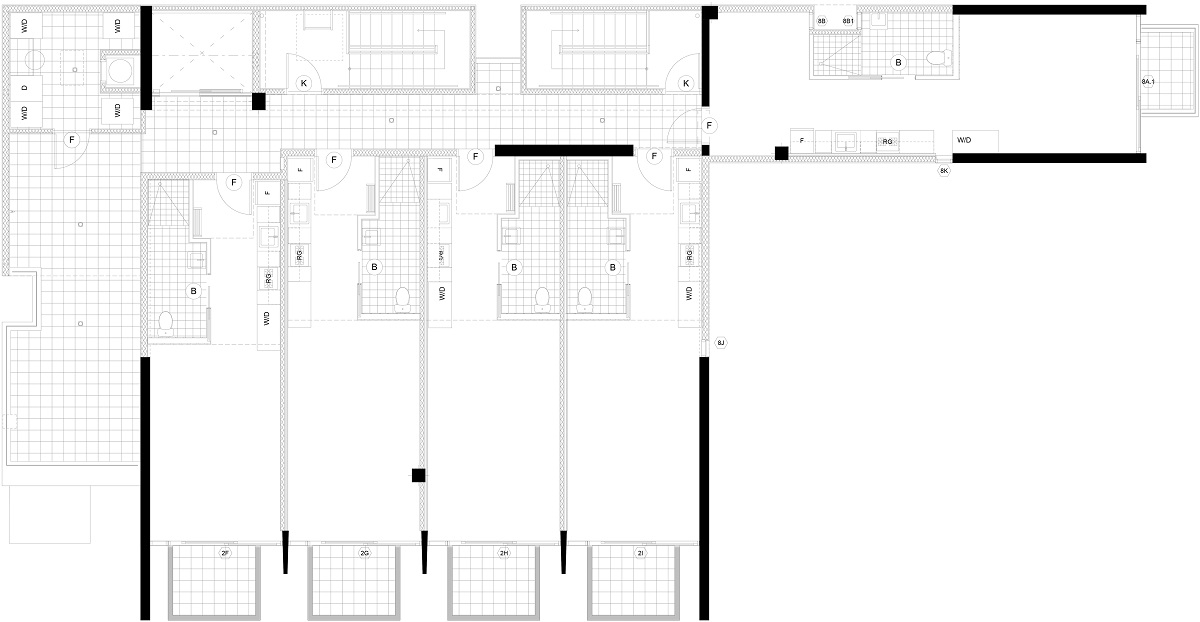
To help mitigate this crisis, The Continental was designed as a case study in reducing apartment size into a 400 sq. ft. “efficiency unit” and initially planned to completely eliminate all onsite parking. This mixed-use project is situated on a postage stamp-sized lot at 5,000 square feet and has 42 apartments, 5 of which are very low income, commercial spaces on the ground floor and a 3 bedroom single family home at the corner. At nearly 390 dwelling units per acre this project could quickly be multiplied and replicated throughout urban transit areas.
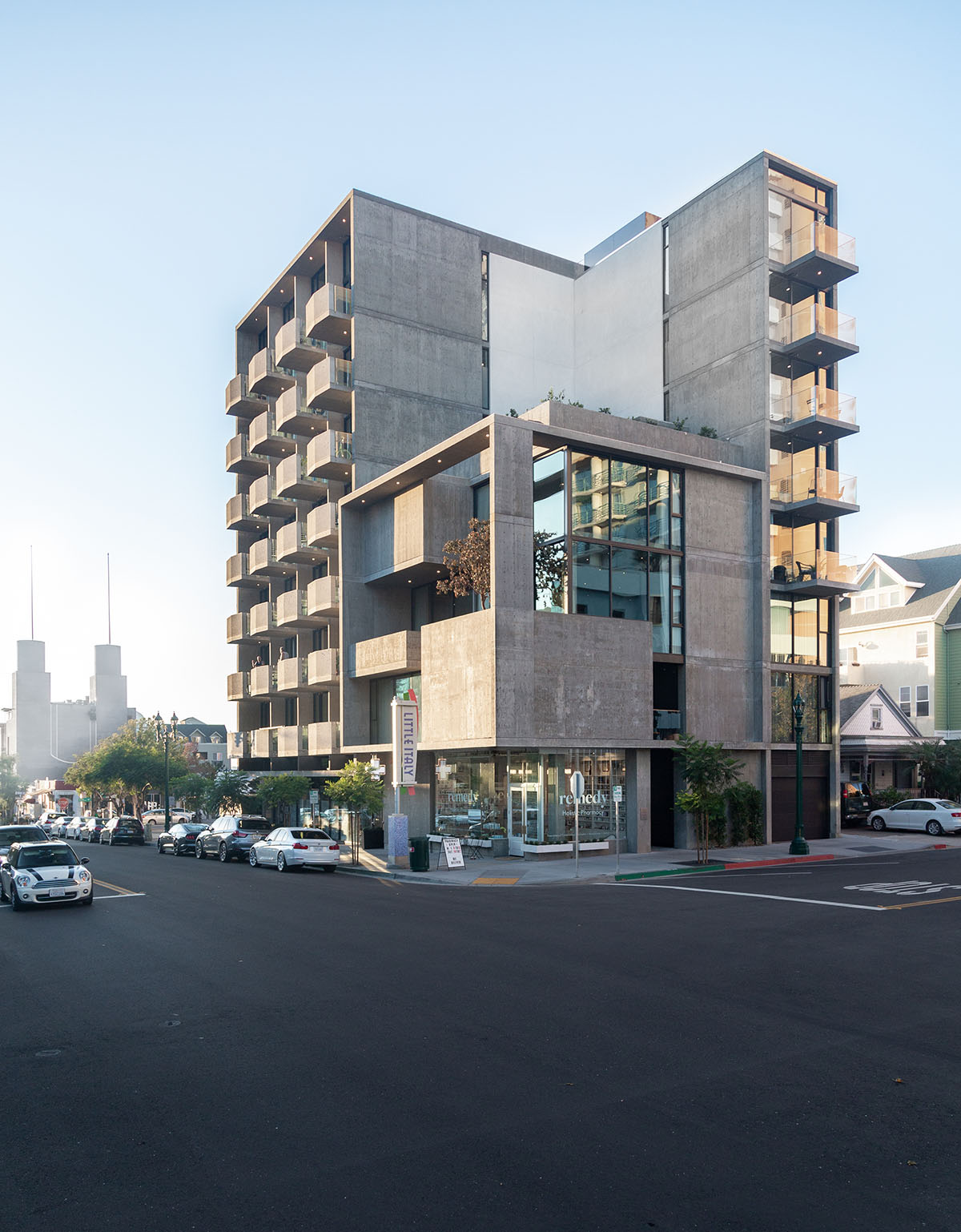
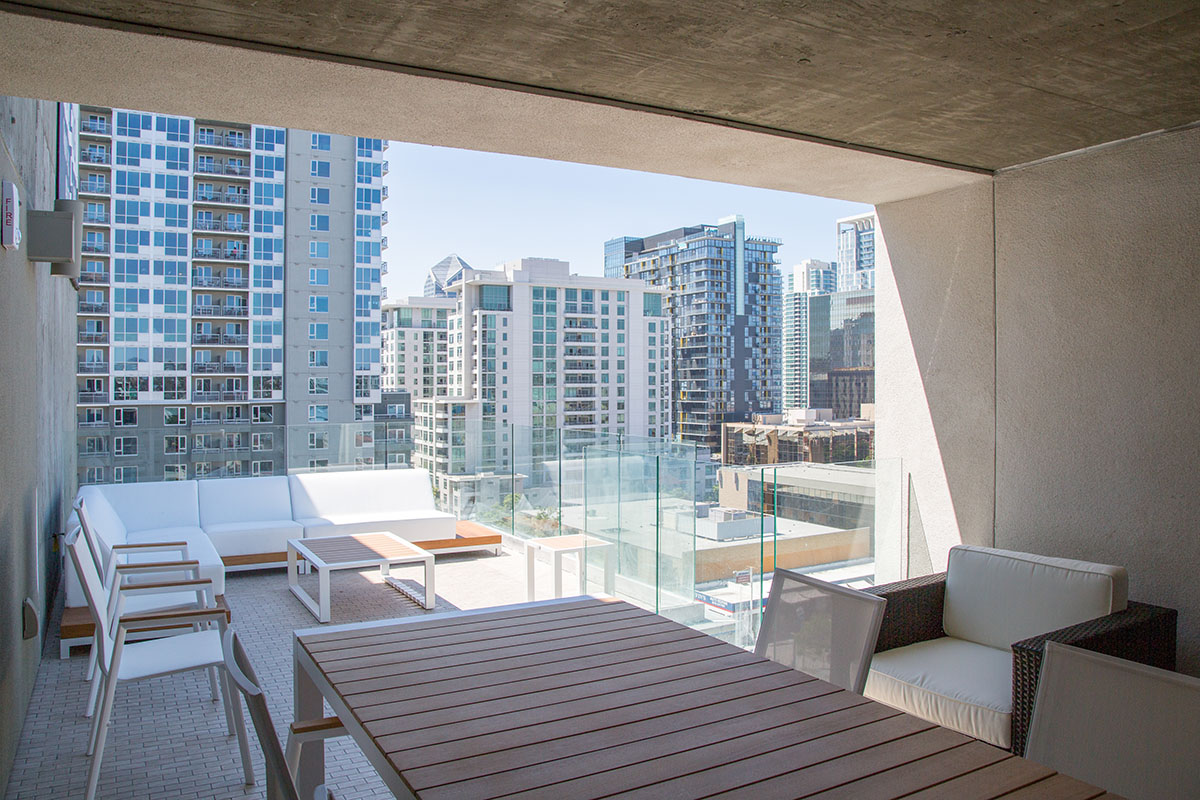
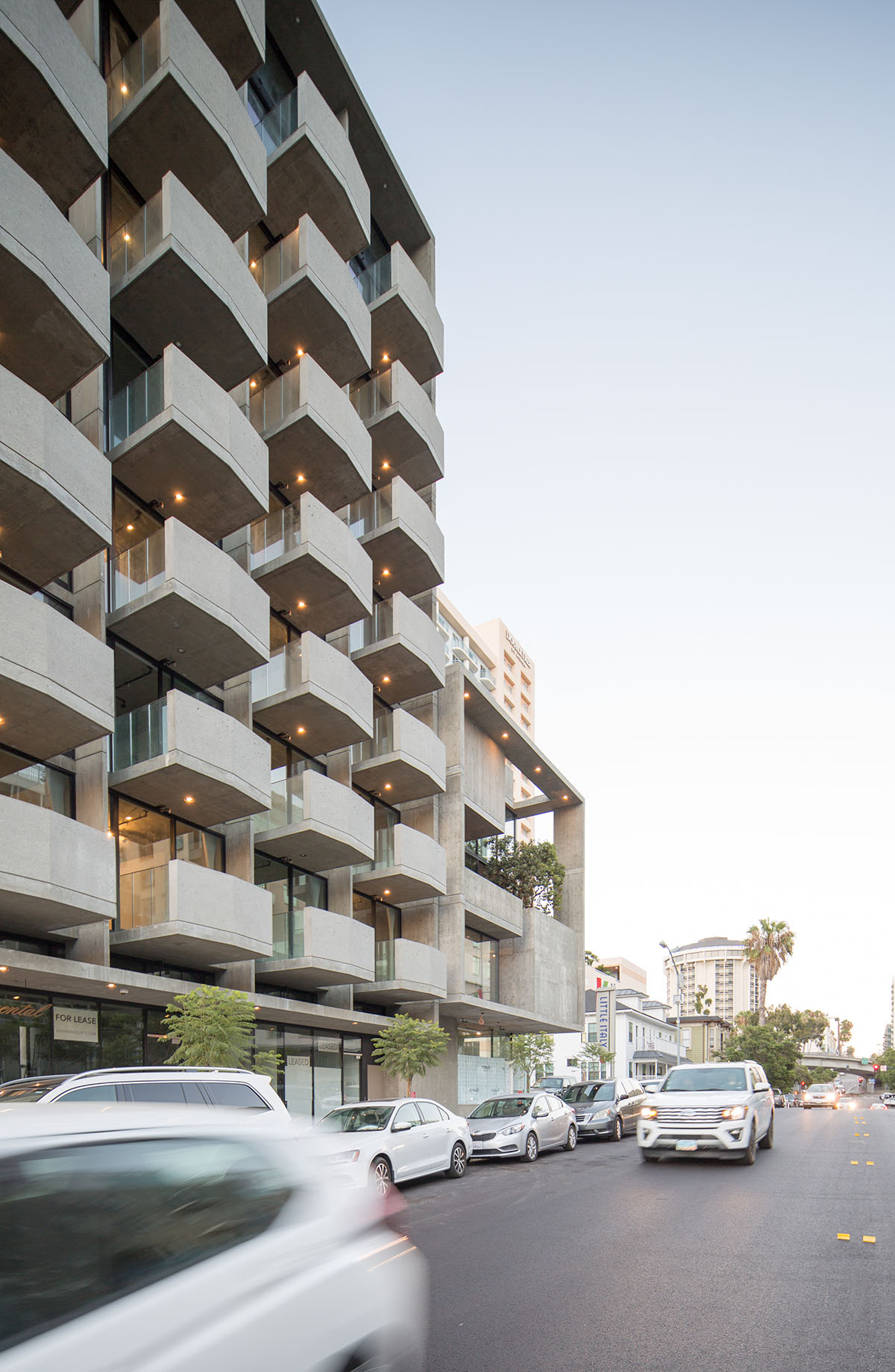
Although it was the intention of the developer and designer to eliminate all parking on site instead relying on the walkability of the neighborhood and public transit, the community pushed back and underground parking for 11 automobiles was integrated.
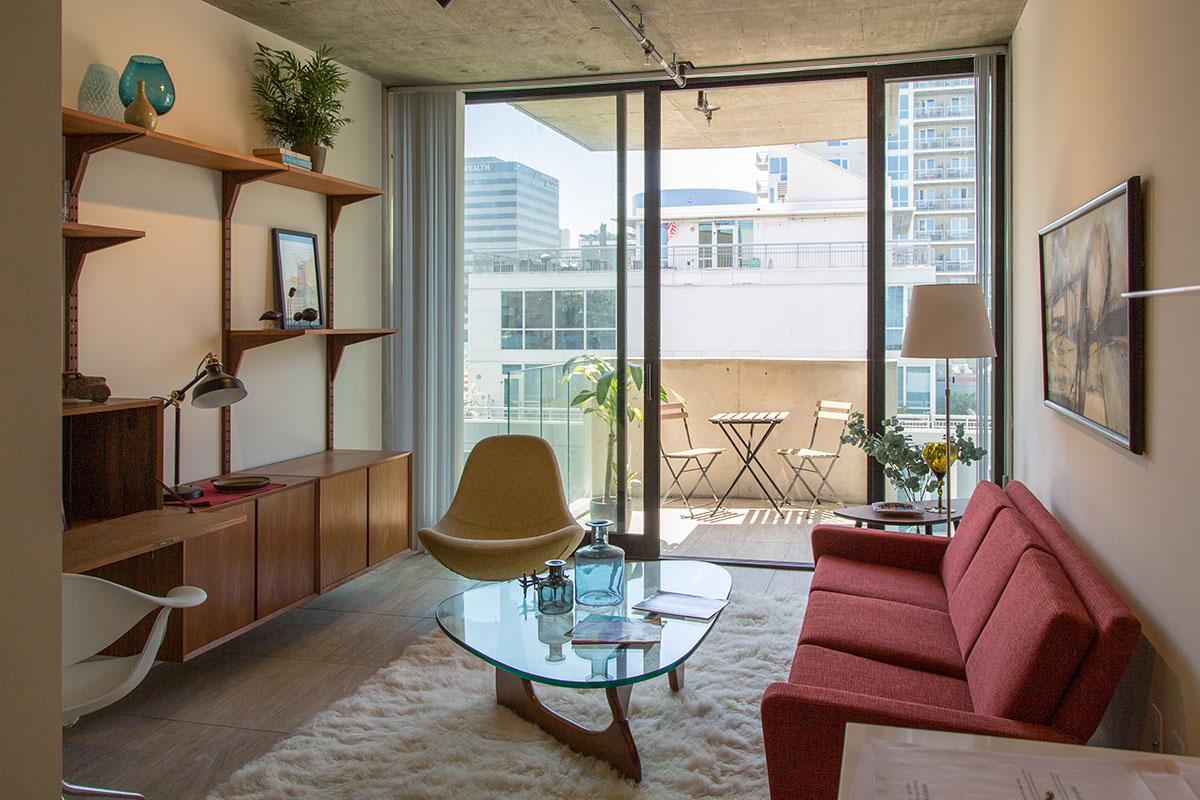
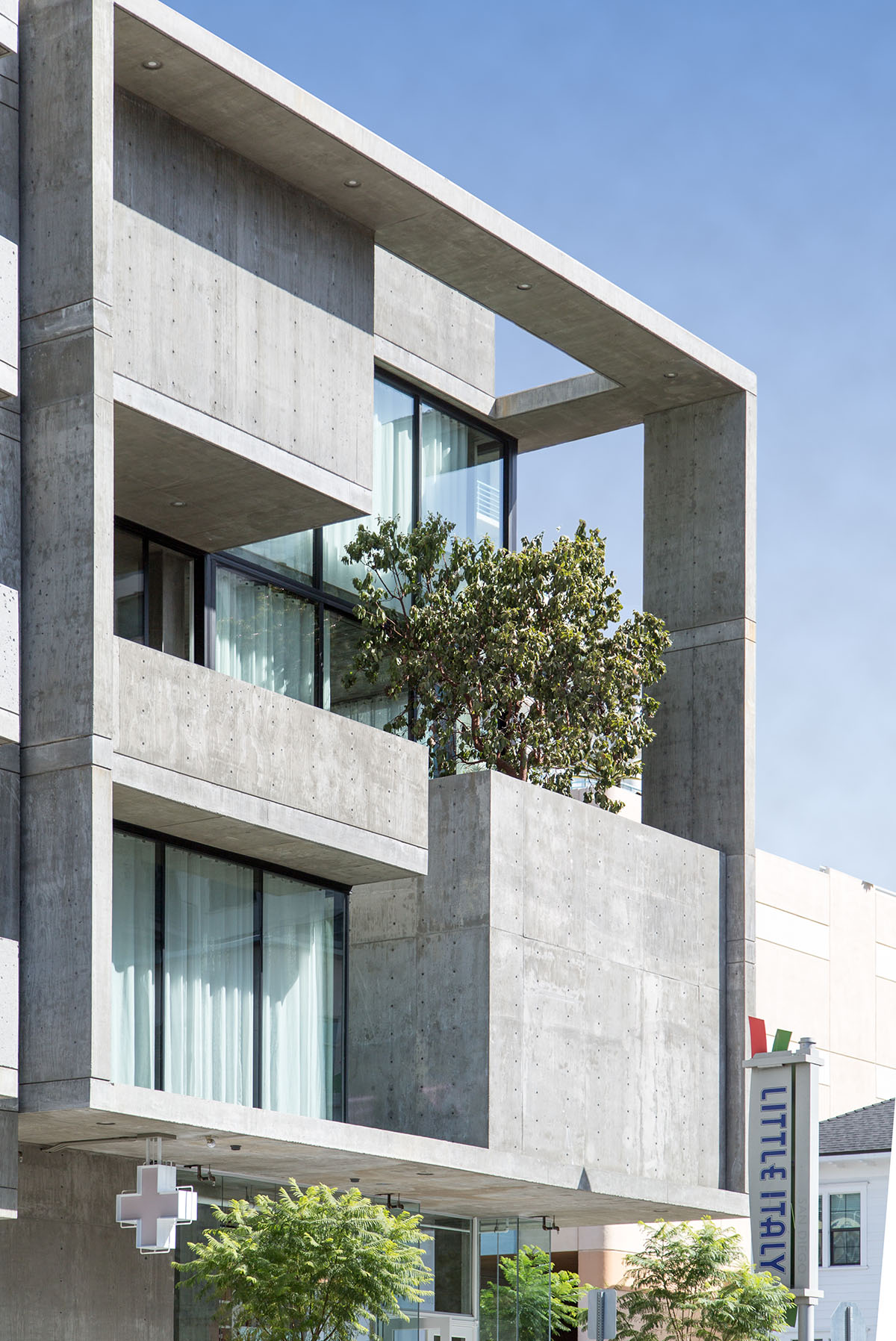
The building features concrete and steel construction with floor to ceiling glazing and large balconies serving as a reprieve from the more intimate interior space and a common roof deck which also houses the laundry services for the building. All core services are fully offset by rooftop solar and the building exceeds Title 24 requirements by 16.9%.
